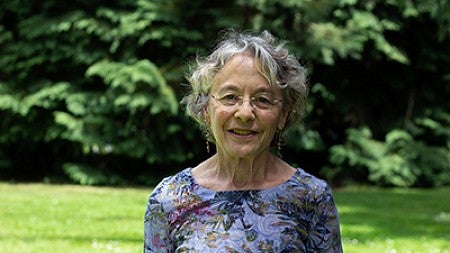
Biology
eisen@uoregon.edu | 541-346-4524
Courses: BI 466/566, Developmental Neurobiology; BI 140, Science, Policy and Biology, HC 441H, Bread 101
In my classes you will:
- Make connections to lived experiences and real-world challenges
- Learn with and from peers.
I was invited into the Teaching Academy because:
- I am a Herman Award Recipient.
In what ways are you working to make your teaching inclusive?
All of my courses use evidence-based, active learning strategies to engage students from diverse backgrounds and promote their ability to think about a variety of topics in biology, and how those topics are relevant to their lives. Classroom activities include discussions of scientific literature or media reports about that literature, as well as projects related to the specific interest of each student.
What do you do in terms of professional engagement with the teaching and learning culture on campus or nationally?
I was the Co-Founder and am currently the Co-Director of the Science Literacy Program. This program was designed to improve science education experiences for undergraduate students through providing opportunities for faculty, graduate students, and undergraduate students to learn about evidence-based pedagogy and practice applying what they learn in the classroom. I engage with other professionals, both locally and nationally, who have similar interests in promoting innovative pedagogical strategies for improving science education.
In what ways was your teaching in this course research-led—informed by research on how students learn and inflected by UO's research mission?
My courses are designed based on principles of pedagogy informed by research into STEM learning and teaching. They include small-group discussions, a variety of guided activities for students to delve into learning about and interpreting scientific research, opportunities for students to reflect on what they are learning and how it relates to real life situations, and chances for students to interact with professional scientists at a variety of levels. These activities and assignments are designed to actively engage students in course discussion, critical thinking, metacognition, disciplinary research while they develop skills in scientific methods and interact directly with scientists.
